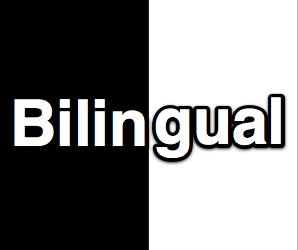Multitasking, Reduced Alzheimer’s, More Bilingualism Pluses
 Being bilingual — really bilingual, where you constantly use both languages — has all kinds of positive benefits for people. The New York Times had a conversation with cognitive neuroscientist, Ellen Bialystok recently; she’s spent almost 40 years studying how bilingualism affects our brains.
Being bilingual — really bilingual, where you constantly use both languages — has all kinds of positive benefits for people. The New York Times had a conversation with cognitive neuroscientist, Ellen Bialystok recently; she’s spent almost 40 years studying how bilingualism affects our brains.
We’ve written before about how being bilingual seems to prevent the development of Alzheimer’s disease. The U.S. is set to have the most Spanish speakers by 2050, even though as we’ve written before, it’s hard being a Latino who doesn’t speak Spanish, as it may or may not make you feel more a part of your culture.
The truth is, while there may or may not be a “right” way to speak Spanish, there are lots of benefits. Bilinguals are better multitaskers and can focus on important information better. Bialystok told The New York Times:
…normally aging bilinguals had better cognitive functioning than normally aging monolinguals…
You won’t get the bilingual benefit from occasional use.
Until about the 1960s, the conventional wisdom was that bilingualism was a disadvantage. Some of this was xenophobia. Thanks to science, we now know that the opposite is true.
There are two major reasons people should pass their heritage language onto children. First, it connects children to their ancestors. The second is my research: Bilingualism is good for you. It makes brains stronger. It is brain exercise.
There’s lots more good stuff in the Q&A, which you can read here.
Follow Sara Inés Calderón on Twitter @SaraChicaD

